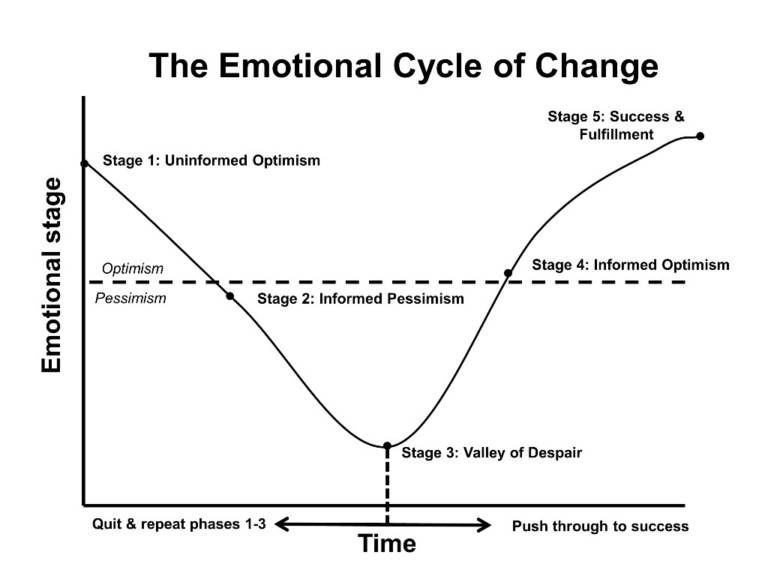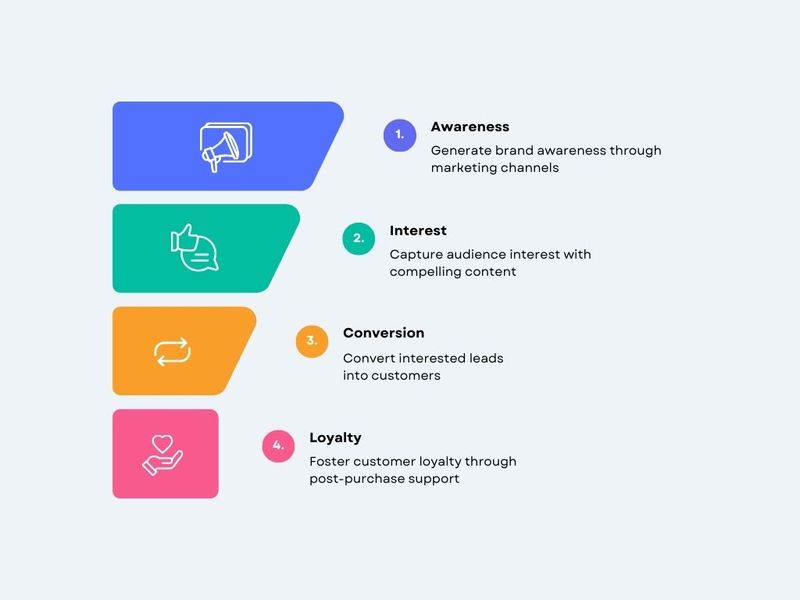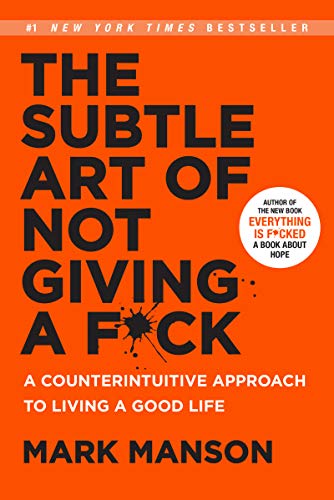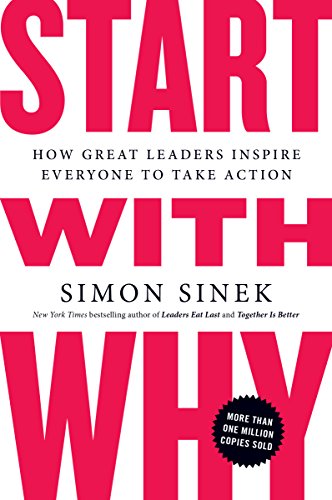Dummies Guide to Starting a Business

Modern Mentor AI
Posted in Business • 10 min read • March 1st, 2026
Relevant Influencers
Timothy Ferriss
Business, Investing
Tim Ferriss is an acclaimed author, investor, and business innovation guru. Recognized as one of Fast Company's 'Most Innovative Business People' and Fortune's '40 under 40', he has advised early-stage technology companies, such as Uber and Facebook. Ferriss has authored four #1 New York Times and Wall Street Journal bestsellers, with 'The 4-Hour Workweek' being his flagbearer. His 'The Tim Ferriss Show' podcast made him 'the Oprah of audio'. Ferriss graduated from Princeton University in 2000, studying language acquisition and East Asian Studies. He honed his non-fiction writing with Pulitzer Prize winner, John McPhee.
Ray Dalio
Business, Economics
Ray Dalio, founder and co-chairman of Bridgewater Associates, has built the world's largest and highest performing hedge fund in the past 40 years. He is the author of Principles, a number one New York Times Bestseller and Amazon Business Book of the Year. Appearing on Time 100's list of the world's most influential people and Bloomberg Markets' list of 50 most influential individuals, Dalio resides with his family in Connecticut.
Rob Fitzpatrick
Business, Marketing
Rob Fitzpatrick is an author, entrepreneur, and business mentor. Over 14 years, he's run numerous small businesses and shared his knowledge in three handbooks: The Mom Test, The Workshop Survival Guide, and Write Useful Books. His books are studied at Harvard, MIT, and UCL, while companies like SkyScanner and Shopify utilize them for training. Having run training programs for companies like HP and Sony Mobile, he's also helped mentor numerous startups. His advice is practical and proven. Fitzpatrick also shares insights via short YouTube videos and more information about him can be found at robfitz.com.
Michael E. Salla
Business
Dr. Michael Salla is a renowned scholar with expertise on international politics, conflict resolution, and U.S. foreign policy. He has held academic appointments at several institutions, including American University and George Washington University in Washington D.C., and Australian National University in Canberra, Australia. Dr. Salla, who holds a Ph.D in Government, has authored multiple books on international politics, and is credited with pioneering 'exopolitics', a field studying political processes associated with extraterrestrial life. Salla has written a series of best-selling books on the subject. He is the Founder of the Exopolitics Institute.
Howard Marks
Business, Investing
Howard Marks is the co-founder and chairman of Los Angeles-based investment firm, Oaktree Capital Management, which boasts $80 billion under management. Academically, Marks achieved a Bachelor's Degree in Finance from the Wharton School and solidified his background by gaining an MBA in Accounting and Marketing from the University of Chicago.
Jake Knapp
Business, Marketing
Jake Knapp, author of "Make Time" and "Sprint", is renowned for creating the design sprint during his decade at Google and Google Ventures. He has mentored 150+ companies such as Slack, Uber, New York Times and LEGO, teaching his process. He is based in San Francisco where he resides with his family.
Marty Cagan
Business, Marketing
Marty Cagan, founder of the Silicon Valley Product Group, is a renowned figure in the tech industry who was previously an executive at notable companies like Hewlett-Packard, Netscape, and eBay. His expertise spans product management, software development, product marketing, user experience design, software testing, and general management. He also offers guidance to tech organizations via SVPG. A prominent author, his written works include "INSPIRED: How To Create Tech Products Customers Love", "EMPOWERED: Ordinary People, Extraordinary Products", and "TRANSFORMED: Moving To The Product Operating Model". He is also a distinguished keynote speaker.
Lyn Alden
Business, Investing
Lyn Alden is a renowned investment and macroeconomic analyst offering research for diverse investors through her platform, lynalden.com. Her unique expertise combines engineering and finance, focusing on energy and monetary system analysis. Besides research publishing, Alden holds positions on the board of Swan.com and acts as an advisor to venture capital firm ego death capital.
Donald A. Norman
Business
Don Norman is a distinguished designer known for his focus on the intersection of people and technology. Noted by Business Week as one of "the world's most influential designers," Norman's influence spans books, lectures, and consultations. He has held numerous esteemed positions, such as Vice President at Apple, and has been honored with multiple degrees and awards. His prolific work includes renowned books like "The Design of Everyday Things" and "Design for a Better World". Norman asserts the importance of design in solving pressing global issues, emphasizing it as a tool to understand and address human behavior. Find his work at www.jnd.org.
Brendan Kane
Business, Marketing
Brendan Kane is a forward-thinking strategist for Fortune 500 companies, celebrities, and brands, specializing in audience engagement. He began his career at Lakeshore Entertainment, pioneering the company's first influencer campaign and working on films generating a $685m worldwide gross. Kane later developed platforms and applications for high-profile clients such as Taylor Swift and Rihanna, accessed by over 50 million people globally. He co-created an advertising technology with MTV, utilized by companies like MGM, Lionsgate, and Sony. Past roles include Vice President of Digital for Paramount Pictures and leading a major social optimization firm. Known for acquiring a million followers in under 30 days, Kane wrote bestseller One Million Followers to share his methods.

Starting a business is a thrilling yet challenging journey that requires dedication, strategic planning, and a bit of courage to take the first step. This article, the inaugural piece of our series, serves as your guide to navigate the complexities of entrepreneurship. Dubbed "A Dummies Guide to Starting a Business," this series aims to equip you with practical advice, starting from the groundwork of business creation to scaling it to a million-dollar venture.
The Most Important Rule: Just Get Started
The cornerstone of entrepreneurship is action. Overplanning or waiting for the "perfect" moment often leads to inaction. The reality is, there's no perfect time to start a business. The key is to begin, learn from the experience, and adapt. Starting small helps you understand the market, your customers, and the business dynamics without significant risk.
Balancing Legalities and Action
One common stumbling block for aspiring entrepreneurs is the legal aspect of starting a business. While it's crucial to understand and comply with legal requirements, it's also important not to get bogged down. Initially, focus on validating your business idea and gaining traction. Utilize affordable resources like Rocket Lawyer for basic legal documents and contracts. Remember, the risk of legal complications is minimal when you're just starting, as long as you operate ethically and transparently.
Financing Your Venture
Capital is the lifeblood of any business. However, not all businesses require a hefty initial investment. Service-based businesses, for instance, often need more time and skill than actual money. On the other hand, product-based businesses might require substantial funds to manufacture and stock inventory. Exploring various funding options is vital, from bootstrapping, seeking angel investors, to crowdfunding. Understand the pros and cons of each to make an informed decision that suits your business model and goals.
What's Next in the Series
This guide marks the beginning of your entrepreneurial journey with us. In the upcoming articles, we'll dive deeper into essential topics, including:
- Coming up with Business Ideas: Learn how to brainstorm and validate business ideas that have the potential to succeed.
- Marketing: Discover strategies to effectively market your business without breaking the bank.
- Branding: Understand the importance of building a strong brand identity and how it can set you apart from competitors.
- Legal Considerations: A detailed look into the legal aspects of running a business to ensure compliance and protect your venture.
- Getting to 1 Million in Revenue: Strategies and growth hacks to scale your business and reach the coveted million-dollar mark.
- Business Systems: Learn how to create efficient systems and processes that ensure your business can operate smoothly and scale.
Embarking on the entrepreneurial path is a mix of excitement and uncertainty. But remember, every successful business today started with a simple step. Your willingness to start, learn, and persist is what will ultimately define your success. Stay tuned for our next article, where we'll explore how to generate and validate impactful business ideas. Welcome to the exciting world of entrepreneurship!

Coming Up with Business Ideas: Crafting the Seeds of Success
Embarking on an entrepreneurial journey begins with the seed of an idea, but not just any idea—a viable, market-worthy one that stands the test of time and competition. This section delves into the art and science of brainstorming and validating business ideas that have the potential to morph into successful enterprises.
Considering Your Strengths and Passions
The genesis of a solid business idea often lies within your own skills, knowledge, and passions. Focusing on areas where you have expertise or a keen interest not only gives you a competitive edge but also sustains your motivation during challenging times. Ask yourself:
- What skills or expertise do I possess that others might find valuable?
- Are there hobbies or passions I could transform into a business opportunity?
- What problems have I encountered that I could solve for others?
Remember, aligning your business idea with your strengths and passions is not just about ensuring proficiency; it's about infusing your journey with enduring enthusiasm and resilience.
Embracing the Grind
It's crucial to acknowledge that success in business doesn't come overnight. It demands time, dedication, and an unwavering commitment to overcoming obstacles. The complexity and challenges inherent in your chosen field are not deterrents but barriers to entry for competitors. The more intricate and demanding your business, the fewer rivals you'll face in the arena. This realization should not discourage you but empower you, knowing that every hurdle you overcome consolidates your place in the market.
Diversifying Your Ventures
While focusing on a single business is often advised, the modern entrepreneurial landscape allows for the exploration of multiple ventures simultaneously, especially in the initial stages. Side hustles can serve as testing grounds for various ideas, enabling you to gauge their viability without significant risk. This approach not only diversifies your income streams but also allows for real-world validation of your ideas, helping you decide which one warrants full-scale investment.
Seeking Inspiration: 10 Websites for Idea Generation
In the quest for that lightbulb moment, the internet is an invaluable resource, teeming with platforms that can spark creativity and inspire innovation. Here are ten websites to explore:
Product Hunt - Discover the latest products and startups, and observe market trends.
Springwise - Access a global innovation intelligence platform for cutting-edge ideas.
Trend Hunter - Dive into trends across industries to find what resonates with consumers.
Kickstarter - Explore crowdfunding campaigns to see what projects captivate backers.
Reddit - Subreddits like /r/Startup_Ideas - Engage with a community of entrepreneurs sharing and critiquing business concepts.
Indiegogo - Analyze successful campaigns to understand market demands and interests.
Hacker News - Stay abreast of technology and startup news that could inspire tech-oriented business ideas.
TED Talks - Gain insights from thought leaders on a wide range of subjects that could spark innovative ideas.
Behance - Explore creative portfolios that might inspire unique business ideas in the design space.
Entrepreneur - Read about successful entrepreneurs and the journeys behind their business ventures.
Validating Your Ideas: 10 Tools and Resources
Once you've settled on a potential business idea, validation is crucial to ascertain its feasibility and market potential. Here are ten tools and resources to aid in this critical phase:
SurveyMonkey - Create surveys to gather feedback on your idea from a broad audience.
Google Trends - Analyze search trends to gauge interest in the topics related to your business idea.
Landing Page Builders (like Unbounce or Wix) - Test market interest by creating landing pages that describe your product or service.
Ad Platforms (Google Ads, Facebook Ads) - Run small-scale ad campaigns to see how potential customers react to your idea.
SEMRush - Conduct keyword research and competitive analysis in your niche.
Lean Canvas - Map out your business model on a single page to clarify your idea's value proposition and feasibility.
Kickstarter/Indiegogo - Launching a crowdfunding campaign can serve as a powerful validation tool for product-based ideas.
Reddit and Online Forums - Share your idea in relevant communities to gather insightful feedback and gauge interest.
MVP (Minimum Viable Product) Tools like Bubble or Glide - Build and launch a minimal version of your product to real users for validation.
Social Media Polls and Interactions - Leverage platforms like Twitter, LinkedIn, and Instagram to conduct informal polls and discussions around your business concept.
The journey from ideation to realization is a multifaceted and evolving path. Leveraging your strengths and interests as a foundation for your business idea not only positions you for greater success but also ensures a more fulfilling entrepreneurial journey. Remember, the road to business success is paved with challenges—each one an opportunity to outmaneuver the competition and solidify your market presence. With the right tools and a strategic approach to validation, you can sift through the multitude of ideas to uncover the golden opportunity that leads to business success.

Navigating the Emotional Cycle of Change
Embarking on the entrepreneurial journey of developing a business idea is not just a financial or strategic endeavor but an emotional one as well. Understanding the "Emotional Cycle of Change" introduced by psychologists Don Kelley and Daryl Conner is crucial for aspiring entrepreneurs. This cycle delineates the emotional stages individuals typically encounter when faced with significant change, including the inception of a business idea.
The Five Stages of the Emotional Cycle of Change
Uninformed Optimism (Stage 1): In the initial phase, excitement and enthusiasm are high. You're buoyed by the novelty of your business idea and the prospects of success. This optimism, however, might not be fully grounded in the reality of the challenges ahead.
Informed Pessimism (Stage 2): As you delve deeper into the process, the complexities and potential obstacles become apparent, leading to feelings of doubt and concern. The realization of the hard work required can dampen initial enthusiasm.
Valley of Despair (Stage 3): Often considered the most challenging phase, this is where the hurdles seem insurmountable, leading many to consider abandoning their venture. The key here is resilience and remembering why you started.
Informed Optimism (Stage 4): Having persevered through the challenges, you start developing a clearer understanding of how to navigate the path forward. Solutions begin to emerge, and confidence starts to rebuild, grounded in experience and knowledge.
Completion (Stage 5): In this final stage, the hard work starts to pay off. The idea is now a reality, and the sense of achievement brings a renewed sense of optimism and satisfaction.
Embracing the Emotional Journey
Recognizing and accepting the emotional cycle of change is pivotal. Each stage is a necessary part of the journey that shapes and strengthens your business concept. Here are some strategies to navigate these emotional phases effectively:
- Awareness and Preparedness: Forewarned is forearmed. Knowing the emotional stages you're likely to encounter allows you to prepare mentally and emotionally.
- Support Systems: Surround yourself with a supportive network of mentors, peers, and loved ones who can offer guidance, encouragement, and a listening ear during challenging times.
- Self-Care: Prioritize your well-being. Managing stress through healthy habits, hobbies, and breaks will sustain your long-term resilience and creativity.
- Reflection and Learning: Use setbacks as learning opportunities. Reflecting on challenges and adapting your strategies will not only help you overcome current hurdles but also equip you with invaluable insights for the future.
Understanding the emotional cycle of change offers a blueprint for navigating the tumultuous waters of entrepreneurship. By embracing this cycle, you prepare yourself not just for the challenges but also for the immense personal and professional growth that comes from transforming a business idea into reality.
Marketing Your Startup
As a startup, establishing a strong marketing foundation is crucial to your success. Whether you're selling products online, offering services locally, or anything in between, effective marketing strategies will help you reach your target audience and grow your business. This article delves into the nuances of online and offline marketing, outlines practical tactics for each, differentiates between sales and marketing, and discusses how to manage your time effectively across these essential activities.
Online Marketing: Expanding Your Digital Footprint
Online marketing is indispensable, especially in today’s digital-first world. It allows businesses, particularly e-commerce sites, to reach a global audience with precision and efficiency. Here are ten foundational online marketing strategies for startups:
Website Optimization: Ensure your website is user-friendly, mobile-optimized, and SEO-friendly to attract and retain visitors.
Content Marketing: Create valuable content (blogs, videos, infographics) that addresses customer pain points and drives traffic.
Social Media Marketing: Utilize platforms like Facebook, Instagram, and LinkedIn to build relationships and engage with your audience.
Email Marketing: Collect email addresses and send regular newsletters with updates, promotions, and personalized content.
Search Engine Optimization (SEO): Optimize your content with relevant keywords to rank higher in search engine results, increasing visibility.
Pay-Per-Click Advertising (PPC): Use platforms like Google Ads to drive traffic to your website through targeted advertisements.
Influencer Partnerships: Collaborate with influencers who can promote your products to their followers.
Affiliate Marketing: Set up an affiliate program to incentivize others to promote your products in exchange for a commission.
Online PR: Get featured in online magazines, blogs, or podcasts to build credibility and reach wider audiences.
Analytics and Data Analysis: Use tools like Google Analytics to track website traffic, user behavior, and marketing effectiveness.
Choosing online marketing methods depends on your business type. For example, an e-commerce site would benefit immensely from SEO and PPC to drive traffic and conversions, whereas a local service provider might focus more on local SEO and content marketing to reach a regional audience.
Offline Marketing: Making Real-World Connections
Offline marketing remains a powerful tool, especially for businesses that thrive on personal connections and local presence. Here are ten effective offline marketing tactics:
Networking Events: Attend or host events to connect with potential customers and other business owners.
Affiliates & Partners: Similar to online affiliate marketing, you can work with local businesses that are adjacent(offer similar or associated products and services) to yours and see if they might be willing to direct potential customers to your business.
Direct Mail: Send postcards, brochures, and flyers to targeted postal addresses to promote offers or new services.
Print Advertising: Place ads in local newspapers, magazines, or industry-specific publications.
Public Speaking: Speak at conferences or workshops to establish authority in your industry.
Cold Calling: Reach out directly to potential customers by phone to introduce your products or services.
Trade Shows: Set up a booth at industry trade shows to showcase your products and generate leads.
Referral Programs: Encourage satisfied customers to refer new clients to your business.
Outdoor Advertising: Use billboards, bus ads, or car wraps to promote your brand in specific locations.
Promotional Products: Distribute items like pens, t-shirts, or bags with your company logo at events or in-store.
Community Involvement: Sponsor local sports teams, charity events, or school functions to build community goodwill.
Keep in mind some marketing methods may work better in small towns, while others may work better in larger cities. A plumber in a small town for instance may benefit greatly from a wrap on their truck or van; while the same may not be true in a larger city.
For a business like a local café or a consultation service, offline marketing strategies such as networking events and local ads can be more beneficial compared to an e-commerce platform that might not benefit as much from these methods.
Differentiating Sales from Marketing
While intertwined, sales and marketing serve distinct functions. Marketing is about building awareness and generating interest in your products or services. It involves telling your brand’s story, engaging with prospects, and creating content that draws customers towards your offerings. Sales, on the other hand, is the process of converting those prospects into paying customers. It involves direct interactions where persuasive skills are used to close deals.
These tips are intended to help you build awareness, however you'll need more than awareness to convert people into customers. Thats where a Marketing Funnel comes into play.

The Marketing Funnel
A marketing funnel is a strategic model used to systematically attract, engage, and convert an audience into customers. This section outlines the stages of a marketing funnel and provides insights on crafting one that is effective for your startup.
Understanding the Stages of a Marketing Funnel
A marketing funnel can be visualized as a funnel in real life: wide at the top and narrow at the bottom. Each stage represents a step in the customer journey, from the initial awareness of your brand to the final decision to purchase.
Awareness: This is the top of the funnel, where potential customers first come into contact with your brand. This might happen through various forms of online content, ads, social media posts, or word of mouth.
Interest: At this stage, prospects are actively looking for solutions to their problems and have identified your product as a potential solution. Content that educates and informs, like blogs, webinars, and detailed product info, are effective here.
Consideration: Now that prospects are considering your product among their options, detailed comparisons, case studies, free trials, and demos are useful to help nudge them closer to a decision.
Intent: Prospects show intent to purchase by actions such as adding a product to their shopping cart on an e-commerce website or engaging with a sales representative. Quick, persuasive communication is key at this stage to answer any final questions they have.
Evaluation: In this penultimate stage, your potential customers are making their final decision. Ensuring that your sales team is equipped with the knowledge and tools to provide outstanding, reassurance can be critical.
Purchase: The bottom of the funnel where transactions occur. Your focus here should be on optimizing the checkout process to make it as easy as possible for the buyers.
Creating Your Marketing Funnel
To design an effective marketing funnel, follow these steps:
Identify Your Target Audience: Understand who your customers are, their needs, and where they spend their time. This information will guide how you attract them at the top of the funnel.
Define Clear Objectives for Each Stage: Each stage of your funnel should have a specific goal, whether it's to inform, engage, or convert. Set clear metrics to measure success at each stage.
Develop Targeted Content: Create content tailored to the needs of your audience at each stage of the funnel. Use educational content to build awareness, detailed guides and comparisons for consideration, and strong call-to-actions (CTAs) for conversion.
Leverage Multiple Channels: Utilize a mix of marketing channels appropriate for your target audience to spread your content. Social media, email marketing, SEO, PPC ads, and offline channels like events and print ads can all play a part.
Implement Lead Capture Strategies: Use tactics like forms, subscriptions, and promotions to gather contact information of prospects. This allows for follow-up communications and nurturing through the funnel.
Nurture Leads: Develop automated email sequences that deliver targeted messages and content to nurture leads down the funnel from awareness to purchase.
Analyze and Optimize: Continuously analyze the performance of your funnel using analytics tools. Look for drop-off points and test changes to your approach or tactics to optimize for conversions.
A well-constructed marketing funnel is crucial for systematically converting casual browsers into loyal customers. By understanding each stage and strategically nurturing prospects throughout their journey, startups can maximize their marketing efficacy and see a tangible impact on their growth and sales. Remember, the key to a successful marketing funnel is not just attracting leads but effectively guiding them through to conversion while maintaining engagement and satisfaction.
Time Management: Balancing Business, Marketing, and Sales
Time management is critical when you’re juggling various functions of your business. Here’s how to effectively manage your time across different areas:
- Set Clear Objectives: Define what you want to achieve in each area—business operations, marketing, and sales—and prioritize your tasks accordingly.
- Create a Schedule: Dedicate specific blocks of time each day or week to focus on marketing, sales, and operational tasks. Use tools like calendars or project management software to keep track.
- Automate and Delegate: Automate repetitive tasks with software tools and delegate when possible. This frees up your time to focus on strategic activities.
- Monitor and Adjust: Regularly review your activities and their outcomes. Be prepared to adjust your approach if certain tactics are not yielding expected results.
Effective marketing, both online and offline, plays a crucial role in building a successful business. By understanding the distinctions between marketing and sales and managing your time wisely, you can ensure that your startup not only reaches its target audience but also delivers on its promises and drives revenue.
Relevant books
Relevant Influencers
Timothy Ferriss - 371
Innovative businessperson, technology advisor and best-selling author known as ‘the Oprah of audio’.Ray Dalio - 344
Founder and co-chairman of world's largest, top-performing hedge fund; author of best-selling book.Rob Fitzpatrick - 163
Business owner and author of three enduring handbooks used in universities and companies globally.Michael E. Salla - 157
A renowned scholar in international politics and peacemaking, best known as a pioneer in 'exopolitics', and a bestselling author.Howard Marks - 94
Cofounder and chairman of Oaktree Capital, with a finance degree and an MBA in accounting and marketing.Jake Knapp - 93
Author of "Make Time" & "Sprint", created design sprint at Google, coached 150+ companies.Marty Cagan - 62
Tech executive with experience at eBay, Netscape, and HP, founded SVPG, is an author and global speaker.Lyn Alden - 51
Independent investment analyst with expertise in energy and monetary systems, board member, and VC advisor.Donald A. Norman - 48
Influential designer and author with a focus on human-tech interactions, former Apple VP, and co-founder of Nielsen Norman Group.Brendan Kane - 0
Innovative digital strategist successfully designing ad tech for brands, celebrities; garnered 1M followers in <30 days.Relevant Books

Rich Dad Poor Dad: What the Rich Teach Their Kids About Money That the Poor and Middle Class Do Not!
93125

The Gifts of Imperfection: Let Go of Who You Think You're Supposed to Be and Embrace Who You Are
40836

















